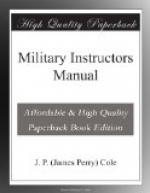ARTICLE 58.
DESERTION:
Punishment: (Wartime) Death or Court Martial. (Peacetime) Court Martial.
“Any person—who
deserts or attempts to desert in time of War
... death or such other punishment as the court
martial may
direct ... any other time any punishment except
death.”
Essential features are:
(1) An intent not to return.
(2) An overt act of separation from duty.
Drunkenness tends to show absence of the
intent.
Minority is no defense.
Enlistment while in desertion does not
remove the charge
of desertion.
ARTICLE 61.
ABSENCE WITHOUT LEAVE:
Punishment: Court Martial.
“Any person who fails to
repair at the fixed time to duty, or
goes from same without leave of absence, or absents
himself from
his command, guard, quarters, station or camp
without proper
leave....”
Does not require to prove intent, yet persons
ignorant of
military law, drunk or victims of mistake are
dealt with gently.
ARTICLE 62.
DISRESPECT TOWARD PRESIDENT, VICE-PRESIDENT, CONGRESS, SECRETARY OF WAR, GOVERNORS, LEGISLATURES:
Punishment: (Officer) Dismissal from the service,
(Soldier)
Court martial.
“Any officer who uses contemptuous
or disrespectful words
against the President, etc.... any other
person subject to
military law who so offends.”
Contemptuous language is objectionable and liable
to court
martial whether
(1) Used in public or private.
(2) In official or private capacity.
(3) Written or spoken.
(4) True or untrue.
ARTICLE 63.
DISRESPECT TOWARD A SUPERIOR OFFICER:
Punishment: Court-martial.
“Any person
subject to military law who behaves himself with
disrespect toward his superior
officer....”
Unlike Article
62, disrespect toward a superior officer requires
no words—acting
or neglecting to act (such as rudeness or failure
to salute) are enough.
ARTICLE 64.
ASSAULTING OR WILLFULLY DISOBEYING SUPERIOR OFFICER:
Punishment: Death or court-martial.
(1) “Any
person subject to military law who on any pretense
whatsoever, strikes his superior
officer—lifts a weapon, or
offers violence against him,
being in the execution of his
office.”
(2) “Or
willfully disobeys any lawful command of his superior
officer.”
Drunkenness here
tends to show absence of the essential
willfullness.
Self defense is
not forbidden nor violence to suppress mutiny.




